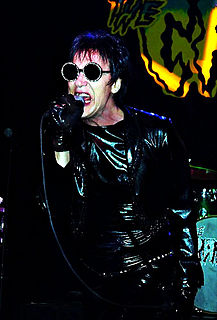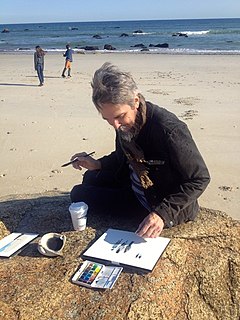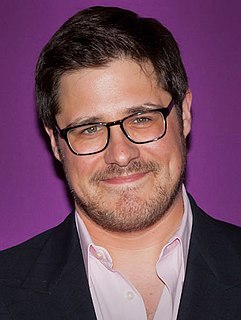A Quote by Bill Watterson
Books are almost always better than the movies made from them, because there are things books do well and things movies do well, but usually those things don't overlap: the same with comics and animation.
Related Quotes
Changes can be made. New decisions can be made. If people say, 'It's not like that in the comics!' Well, comic books reinvent their characters a lot. They do different things with them all the time. They're always changing, always keeping things fresh. So that shouldn't be an issue if the race changes for a character.
Mainly horror movies and exploitation movies and a lot of stuff comes from those press books from those old movies. Lines out of old movies, comic books that we collect, all the old horror comics of the 50s, probably about the only comics that we collect are obscure horror comics, the real sick ones from the 50s. Some stuff comes from there but mainly just old records, old rockabilly records and that stuff, singles mainly, 45s.
Anything really well-made has the effect of making you want to do what you do-better. Abrams has always made very beautiful books. It's exciting to see this same excellence applied to the presentation of comics. Abrams ComicArts shows comics are stepping out of vaudeville and into Carnegie Hall-but the Marx Brothers will always be welcome!
Some things definitely work better on film than in books. Introspection is great in books but it doesn't work on film. Anything with high intensity, whether it's a love scene, a car chase, a fight scene - those things work so well on film and oftentimes they can tell a much broader part of the story.
There are a bunch of different movies I feel that way about. However, there is a debate because as you may know after MST3K ended there have been things like Cinematic Titanic that are the children and the grandchildren of this way of dissecting movies and making fun of them and in a way celebrating the absurdity of those movies as well. There are certain movies that sort of fit into the MST3K paradigm which is hidden gems, these weird horror/sci-fi/fantasy movies.
There were no horror movies or horror books to speak of in the '40s. I picked the '50s because that pretty well spans my life as an appreciator - as somebody who's been involved with this mass cult of horror, from radio and movies and Saturday matinees and books. In the '40s there really wasn't that much. People don't want to read about horrible things in horrible times. So, in the '40s, there was Val Lutin with The Cat People and The Curse of the Cat People and there wasn't much else.
It's a really common trap to want your life to live up to some standard that you believe in, and then you start to really examine those standards and realize they come not from experiences you've had, but things you've seen in movies, or feelings you've felt listening to pop songs, or ideas you've received from reading books. And not just happy things, but a lot of the time, sad things. It gets kind of depressing, when you see how movies and songs make these promises to us.
Because I didn't go to film school, I had a collection of books that were inspiring or taught me how to make movies, shorts with my friends back in Brooklyn, and one of those books was How I Made a Hundred Movies in Hollywood and Never Lost a Dime which is Roger's autobiography. After reading that, I realized that oh my God, this guy is behind all my favorite Pam Grier movies. Oh my God, he made the Vincent Price Poe films that ran on television when I was little. He did Grand Theft Auto. He made Death Race 2000.
I think there are things that aren't represented in movies that are a big part of everyone's life. We romanticize everything about people in movies. One of the things I don't like in movies is that people feel alone with their bodily functions in the real world, as if people in the movies don't do these things.



































